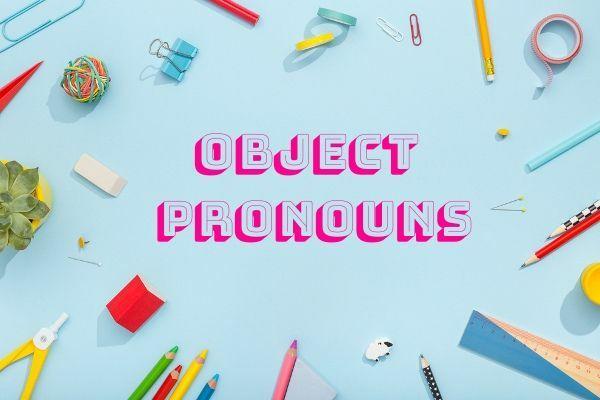The use of going to and will is the most frequent when we think about the future in the English language. However, the future can be expressed through the present continuous, of simple present and the structure be going to. Among so many options, in this text, we will explore the use of going to.
First, it should be noted that being going to is a fixed structure|1| and not a tense, to be more specific. In order to understand the functioning of this structure, in the following sections, we will approach the going to rules, and we will also compare them with the will, to differentiate them according to aspects of the future. Let’s go!
Know more: Phrasal verbs: what are they and how to use them?
When to use going to?

We use going to often to future plans and intentions.
Note the following examples:
1. I’I'm going to sell my car.
- Me I will sell my car.
At some point in the past or present, the “I” guy decided to sell the car at some point in the future. There is the intention to sell.
2. Anna is going to open your own business next month.
- Anna go open your own business next month.
Anna, at some point in the past, decided that she would start her own business. Therefore, as there is a planning done before, we use the structure be going to.
3. What are your plans for vacations? – I’I'm going to travel with my family to Salvador.
- What are your vacation plans? – I'm going to travel with my family to Salvador.
The subject of the sentence made a travel plan. This means that it was not a spontaneous decision, from the moment, but made before.
See too: Modal verbs: what are they for?
Do not stop now... There's more after the advertising ;)
Going to use rules
First, it is important to know that the be going to structure is fixed. Consequently, one must pay attention to the conjugation of the verb I'mwell that agrees with the subject of the sentence, followed by going to + main verb, in its base form:
1. he isgoingI'msee the movie.
- He go to see film.
with the verbs go(go) and eats(come), it is more common to use the presentcontinuous instead of going to:
2. I’I'm going to France. instead of I’mgoing to go to France.
Me I am going to France. Me I will go to France.
Affirmative form
In your affirmative, be going to has the following structure:
be going to |
Examples |
I'm going to |
I’m going to dance. I will dance. |
you are going to |
You’re going to be a teacher. You will be a teacher. |
He/she/it is going to |
It’s going to rain. Will rain. |
we are going to |
We’re going to buy a house. We are going to buy a house. |
you are going to |
You’re going to arrive late. You will be late. |
they are going to |
They’re going to learn Spanish. They will learn Spanish. |
Negative form
To make a negative sentence with be going to, just add the not after the verb to be:
not be going to |
Examples |
I'm not going to |
I’m not going to dance. I will not dance. |
you are not going to |
You’re not going to be a teacher. You won't be a teacher. |
He/she/it is not going to |
It’s not going to rain. It won't rain. |
we are not going to |
We’re not going to buy a house. We are not going to buy a house. |
you are not going to |
You’re not going to arrive late. You will not be late. |
they are not going to |
They’re not going to learn Spanish. They won't learn Spanish. |
THE contracted form in the negative sentence it can occur in two ways with the subjects you, he, she, it, we, they:
It’just not going to or It isnt going to
they’re not going to or they aren't going to
Interrogative form
To ask a question with be going to, just reverse the order between the verb to be and the subject of the sentence:
be going to |
Examples |
Am I going to? |
Am I going to dance? Will I dance? |
Are you going to? |
Are you going to be a teacher? Will you be a teacher? |
Is he/she/it going to? |
Is it going to rain? Will rain? |
Are we going to? |
Are we going to buy a house? Are we going to buy a house? |
Are you going to? |
Are you going to arrive late? Will you be late? |
Are they going to? |
Are they going to learn Spanish? Will they learn Spanish? |
Other uses of going to
In addition to previously established future plans or intentions, be going to para future predictions, especially in the presence of a evidence.
1. Look at the clouds in the sky. It is going to rain.
- Look at the clouds in the sky. Will rain.
2. It’s already 10 am. You’re going to miss the plane.
- It's already 10 in the morning. You will miss the plane.
We can use be going to, when something is close to happening:
3. Hey, be careful! You’re going to fall.
- Hey, watch out! You will fall.
Differences between using will and going to
Both will and be going to express the idea of the future. Furthermore, we can use both frameworks to talk about future plans or make predictions. However, there are meaning differences when we use one or the other, which can lead the foreign language learner to become confused.
In the case of future predictions, the structure going to is used when we have a evidence that something will happen. while, with will, the prediction probably will happen. Thus, it is common for expressions like probably (probably), perhaps (perhaps), definitely (definitely) and i think (I think) be used in prayers with will. Look at the examples:
1. I think they will win the game.
- I think they will win the game. = They are likely to win.
2. She studied a lot. She’s going to pass the test.
- She studied hard. She will pass the test. = Prediction to pass the test is based on evidence that she studied hard.
As for intentions, the use of the two structures will depend on planning. if it's something decided previously, one must use going to, but if it is a spontaneous decision, made at the time of speech, you must use will:
3. I'm going to the beach in July, and you?
- I'm going to the beach in July, what about you?
It is clear that there was prior planning.
4. Do you want to watch a movie? – All right, I will go with you to the cinema.
- Do you want to watch a movie? – All right, I'll go with you to the movies.
It is clear that it was a spontaneous decision.
Read too: What is the difference between to and for?
solved exercises
question 1 (UFRR - adapted). Complete the sentence with the correct option:
Mary: “I am about to fall asleep. I need to wake up!”
Clare: "I______you some coffee."
- 'll go
- am going to get
- will get
- am going to get to
- will go to get
Resolution
The correct answer is the letter c, because, given the situation, Clare spontaneously decided, at the time of the speech, to get Mary coffee.
question 2 Choose the best option to complete the following sentences:
- The temperature is dropping very quickly. It __________ snow tomorrow.
- Would you like some coffee? – Okay, I __________ have a cup, please.
- He is driving very fast. He __________ hit the wall.
- Will, am going to, is going to;
- Is going to, will, will;
- Is going to, will, is going to.
Resolution
The correct answer is III, because in the first sentence we have evidence; in the second, a decision made at the moment of speech; in the third, we also have evidence to make the prediction.
Note
|1| DECAPUA, 2008.
By Patricia Veronica Moreira
English teacher


